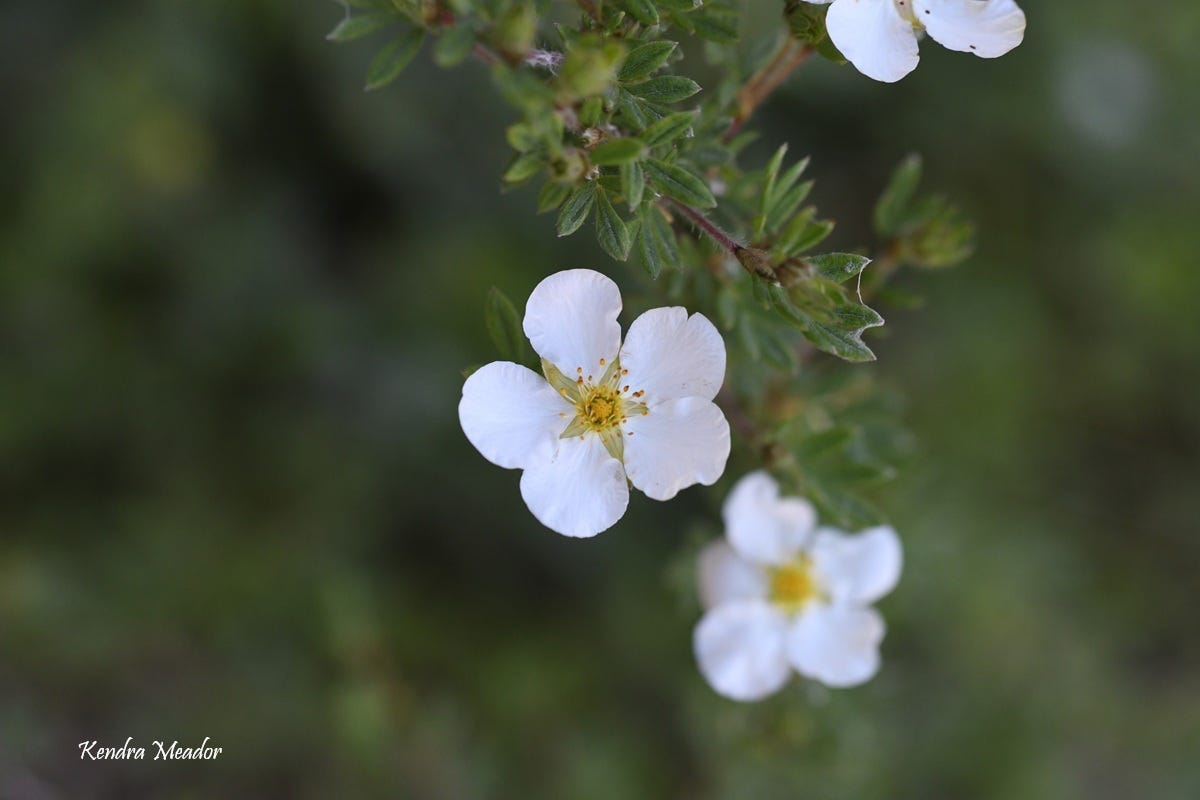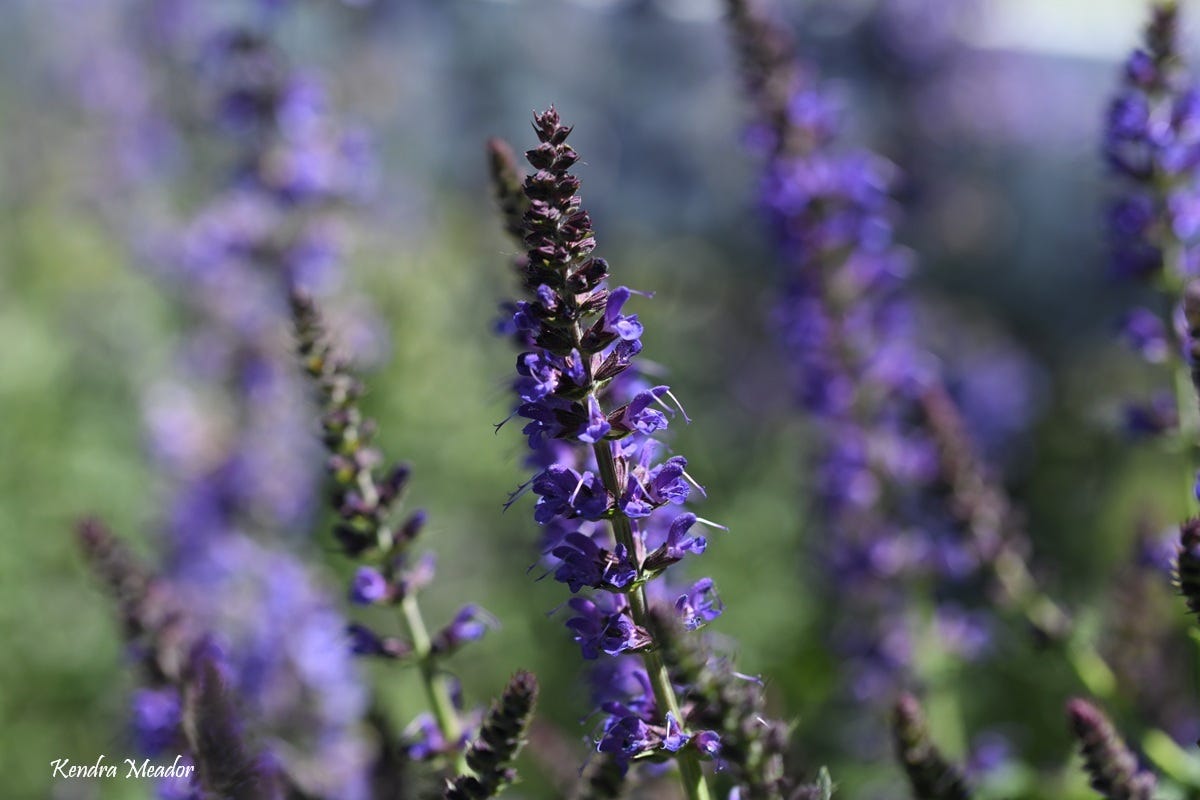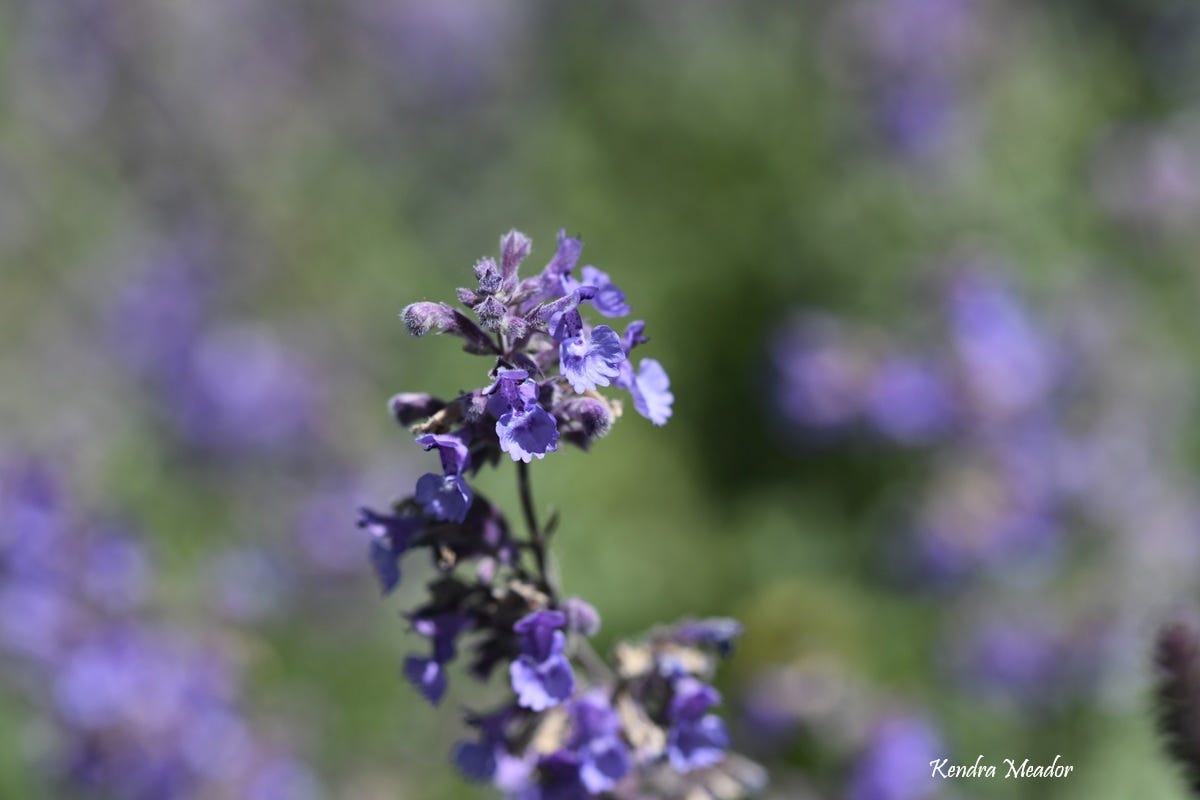Become a Better Herbalist by Growing Your Own Herbs
These reasons benefit you, the plants, and the wider world.
Howdy and hello there! It’s now April, and things are starting to wake up around here. Perhaps this is not the case where you live. You may still have snow, or maybe it’s been warm in your neck of the woods for a while.
Either way, this article advocates for growing your own herbs. You may not consider yourself an herbalist, but perhaps you love to drink herbal teas or make natural skin care creams.
So, I would argue that most of you will find some benefit from this topic, no matter how herbs appear in your life.
You don’t even need to grow herbs to use them medicinally—most have beautiful flowers that attract pollinators and/or repel pests and provide a wonderful aesthetic to your garden.
Let it grow
Gardening is my jam, and it’s one of my favorite activities in the whole world. If I weren’t able to garden, I would be one depressed human being. So naturally, I think most everyone would benefit from some form of gardening.
I started out with vegetables, added some berries and fruit a few years later, and then moved on to herbs once I began studying herbalism. Now, herbs are definitely the plants I enjoy growing most.
I love how herbs complement the vegetable garden and are wonderful additions to the landscape. Edible landscapes are becoming all the rage, and for very good reason, I should say.
So, without further ado, here are the reasons why I think every herbalist should grow their own herbs:
Unhampered Control
You get to choose what species and variety to grow.
Sure, there will be some limits depending on the climate you live in, but there are a huge amount of herbs for each climate. Have fun with it. This is your chance to experiment and find what works best.
Pro Tip: Grow some herbs that are native to your area.
Native plants attract native insects, are acclimated to your climate, have fewer diseases and pests, and are essential for your local ecosystem.
You control what goes in them.
Raise your hand if you want chemical-free medicinal herbs! I know I do. If I’m going to ingest something, especially if it’s for my overall well-being, I don’t want a bunch of toxins in it.
Connection & Relationship
We talked about befriending herbs in a recent post, but it’s worth mentioning again. As you nurture and care for the herbs you plant, a connection forms, and before you know it, a relationship develops.
Not just any old relationship, a reciprocal relationship.
This relationship is the foundation for learning everything about the herb. You’ll determine what conditions it needs to grow and thrive. As the plant develops, curiosity will kick in about how you can work with it. Next comes research about its medicinal, spiritual, and culinary properties.
As with any good relationship, you begin to appreciate the plant for what it offers, and you will do everything you can to keep it happy and alive.
In-tune with the Seasons
Herbal gardening is a great way to align with the seasons. As you move through each season, you will learn how to adapt to the plant’s needs as well as your own. It’s great to know what how the plant appears in each stage of growth and what it provides within each season.
Take dandelion, for instance. In the early spring, the greens are used, and then comes the flower. By the time fall rolls around, the root is ready for use.
Aligning with the seasons also means embracing the energy of that particular season, and you learn to value each phase of your plant's life cycle.
Improve Medicinal Qualities
I have no proof of this, but I believe herbs grown with their well-being in mind are healthier and thus have stronger medicine.
When they aren’t bombarded with pesticides, herbicides, and other toxic chemicals and are instead provided with nutrients and love, it makes sense that they will be healthier and the medicine they provide will be of higher quality.
Herbs are like people; they thrive with love and attention.
Decrease Your Footprint
Growing your own herbs has a sustainable aspect. Think about the process an herb ordered online goes through to get to your home, especially if it is shipped from thousands of miles away.
There’s processing, packaging, transporting, and who knows how eco-friendly the company truly is (unless you have visited it yourself).
Then there’s the issue of purchasing wild-crafted herbs. I always wonder if the company is cognizant of what and how much it gathers because wildcrafting always has some form of impact on the local ecosystem.
Again, I’m not saying you have to grow every single herb you work with. However, as herbalists, we have certain responsibilities to uphold and maintain.
Were those reasons sufficient to persuade you to cultivate a few herbs?
Watch out, though, because once you decide to grow a few herbs, it can easily become an addiction! Whatever you decide to do, I wish you the best gardening season and hope you make a few herbal friends this year.
See you in the garden!
Paid Members
Go to the April page for a plant profile template I created just for you! This template allows you to jot down all the details about the plants you decide to grow.










I love this! In my own experience (anecdotal evidence), I've found my thyme tinctures made from my garden thyme and dried and crafted by me, to be more potent in flavor and medicinal effect than store-bought organic thyme made into a tincture.
My favorite garden items to grow are herbs and berries. Both are so resilient and full of health benefits...and used up within the year. :)